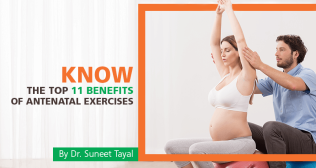
I Pill Side Effects
I-Pill
To prevent unwanted pregnancy in the event of risky sexual activity or contraception failure, the I-Pill is used as an emergency contraceptive tablet. The emergency contraceptive pill must be taken within 72 hours after having unprotected sex.
How does an I-pill work?
Emergency contraception pills contain a hormone that acts as a synthetic form of the hormone progesterone, which helps to prevent pregnancy. It does not affect your regular method of birth control. This also results in the delay or prevention of ovulation. I-pills will not be effective once fertilization and implantation have occurred. It cannot terminate an existing pregnancy.
I-pill effectiveness
The effectiveness of the I-pill, an emergency contraceptive pill, varies depending on when it is taken after unprotected sex. If taken within the first 24 hours, it is claimed to be highly effective at more than 95%. The effectiveness drops to 85% if taken between 25 and 48 hours. However, if taken between 49 and 72 hours, the effectiveness reduces significantly to 58% or less.
But individuals can make mistakes and it's easy to forget or overlook pills. Accordingly, 7 out of every 100 women who take emergency contraceptive pills become pregnant annually. If you vomit within two hours of taking an emergency contraceptive pill, it is recommended that you seek medical advice as it may not have been fully absorbed into your system, which can affect its effectiveness.
Side Effects of I-Pill Tablets
A high hormone dose disrupts the usual menstrual cycle, and the woman may bleed irregularly or experience delayed menses in the following month. Some users of the medication report experiencing pain, nausea, and breast discomfort.
Some people who use emergency i-pill, associate it with melancholy or weight gain. When using hormonal birth control, some women gain weight, some maintain their weight, and some even lose weight, according to research involving thousands of women. Some other side effects include:
- Nausea or vomiting
- Breast soreness
- Faintness
- Bleeding between periods or heavier menstrual bleeding
- Tiredness
- Lower abdominal pain or cramps
I-Pill Side Effects on Periods
Studies have shown that regular i-Pill use can result in many adverse effects. There can be some typical i-Pill side effects on periods.
- Women's menstrual cycles undergo significant modifications as a result of the i-Pills' disruption of the cycle by creating heavier, lighter, earlier, or later than usual periods. You might even notice a few strange and unexpected changes in the vaginal discharge.
- Taking an emergency contraceptive pill during the first three weeks of the menstrual cycle can cause the period to come early. If taken during the fourth week, the period may still arrive on schedule but with abnormal bleeding that is typically heavier than usual. However, when taken within a couple of days before or after ovulation, there is little to no change in the timing or amount of bleeding.
- Additionally, it causes abdominal pain, which may also result in weakness, constipation, and body aches.
I-Pill Side Effects On Future Pregnancy
The morning-after pill, often known as the I-pill, has no impact on a woman's fertility or the likelihood of future pregnancies. Whenever necessary, it is safe to use emergency contraceptive pills.
Age Restrictions for Using I-Pill Tablets
Women between the ages of 25 and 45 are advised to take this medication. Using an emergency contraceptive pill as a regular method of birth control is not considered safe for adolescents. It is crucial to remember that because their reproductive organs are still developing, so youngsters should avoid using them.
Frequently Asked Questions
When to take an i-pill?
In the event of a contraceptive failure, such as a condom bursting or leaking, forgetting to take a pill, or unexpected or forced intercourse, a woman should use the emergency contraceptive pill, often known as the morning-after pill, to prevent pregnancy.
How can I tell whether my tablet was effective?
The best way to determine if the emergency contraceptive pill, also known as the i-pill was effective is by taking a pregnancy test.
Even after taking an I-pill, can I become pregnant?
Despite taking the i-pills within 72 hours after having unprotected intercourse, about 1 or 2 out of every 100 women who use emergency contraceptive pills get pregnant.
Do I need a pregnancy test after taking an i-pill?
The chances of getting pregnant after taking an emergency pill or an i-pill are low, but if you miss your periods, it is best to take a pregnancy test for surety.
How often can I-pill be used?
The emergency contraceptive pill, or the i-pill, can be used as needed in case of unprotected intercourse. It is considered safe to use and there is no limit on the number of times it can be used in a given time period. However, it is not intended to be used as a regular method of birth control, and it is most effective when used as soon as possible after unprotected intercourse.
Can I use I-pill as a regular birth control pill?
I-pill tablets are effective emergency contraception. But the i-pill is not a typical birth control pill. It should only be used in dire circumstances like contraception failure or unprotected intercourse. Do not use the i-pill as the primary form of birth control.
Should I take multiple i-pill tablets to ensure the results?
Within 24-72 hours after unprotected sex or a contraceptive failure, one I-Pill medication is sufficient. There’s no need to take more than one emergency contraception.
Does an i-pill tablet protect from future pregnancies?
Taking an i-pill or emergency contraception will only prevent you from getting pregnant at that time and will not prevent future pregnancies.
I vomited after taking the i-pill what should I do?
Within two to three hours of taking an i-pill or an emergency contraception pill, you might become nauseous. In case of vomiting, the medication likely wasn't absorbed by your body. You should immediately take another i-pill.
Our Other Specialties
Neurology Hospital in Mumbai | Kidney Transplant Hospital in Mumbai | Cancer Hospital in Mumbai | Bone Marrow Transplant Hospital in Mumbai | Heart Hospital in Mumbai | Breast Cancer Hospital in Mumbai | Mouth Cancer Hospital in Mumbai | Anemia Hospital in Mumbai | Heart Failure Treatment in Mumbai | Emergency Hospital in Mumbai | Radiation Therapy in Mumbai | Eye Hospital in Mumbai
Categories
Clear allMeet the doctor

- Obstetrics and Gynaecology | Obstetrics and Gynaecology
-
17 Years
-
1300



















